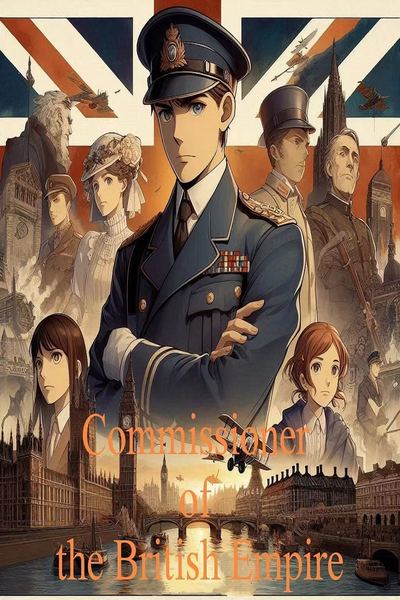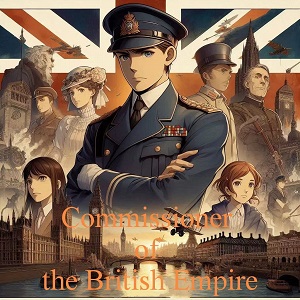"We are gentlemen of the civilized world, we don't see things in terms of local caste."Pamela Mountbatten blushed strangely, this young civil servant, how did he open his mouth like an old man, it was clear that there were many good things in the world and the other side was blind to them.
"Every day the two great religions are fighting at gunpoint, and we, Britain, have colonized this place, when we leave one day, do we expect the Indians to thank us?"Alan Wilson laughed and said, "What Britain has done here, we as Britons know exactly.
The only time British India wanted a more efficient administrative system was before the Great Indian Mutiny, when Britain created an efficient administrative system while devouring the native states and eliminating the caste system.
But the caste system was the backbone of Hinduism, and in the end a combination of several reasons led to the Great Indian Rebellion.After the Great Indian Rebellion, British India also formally appeared.After that, the Governor General of British India, formally gave up his previous idea of retaining the native states and living in harmony with them, and did not think of taking action against the caste system.
Even if the British sent more colonial officials, they would always be at a disadvantage in terms of numbers, so the caste system happened to be convenient for their colonial rule, making it easier for them to figure out which communities were the upper class that needed to be lured and bribed, and which were the lower class of people who only needed to serve as cheap labor.
The traditional caste system, which limited individual occupations, also made it easier for the British to plan which ethnic groups would perform which manual labor, and which upper classes, bought with favors, would occupy which positions in the colonial government.
The British Empire did not rule India to provide welfare and equality for all, and its maintenance of this system of hierarchizing people was essentially the same nature as categorizing zoo animals for ease of captivity.
After a long period of study, British India officially incorporated caste into the laws of British India to strengthen it, and as for British citizens, they enjoyed all the rights and benefits of the high castes in India, but were not included in any of the castes.
"Miss, don't trust the upper echelons of any colony, they all have an agenda, it is a given that they will incite the lower class to curse us once we leave," Alan Wilson tapped the desk one by one with the document bag in his hand, "don't look at how peaceful they act, it is all a lie, Nehru is one of the representatives."
Nehru?Pamela Mountbatten heard the name as if she had heard her mother say it!
Why isn't the Commander-in-Chief of the South East Asia Theater back yet?Alan Wilson, though already prepared for a career in the civil service, happened to accept a less than trustworthy mission, the mission was actually still trustworthy, and Mountbatten, the man, was a bit unreliable.
"Why don't I help you give it to my father, you don't trust me, do you?"Pamela Mountbatten held out her hand and raised it in front of Alan.
"Uh, no, it's just more reassuring to hand it over yourself.It may contain the distribution of supplies for British Indian support of the war effort in Burma, which should not be known to political figures of Indian origin."Alan Wilson wanted to say something, as if he had made up his mind to hand it to Pamela Mountbatten, "I'm not an officer of the Viceroy's Office, and I have to rush to Hyderabad in the next few days, so I'll leave it to you."
"Don't worry, I'll give it to Father myself and never let Mother see it," Pamela Mountbatten tilted her head and said confidently, "You're too serious, how do you look like someone from MI6?"
Alan Wilson's body gave a slight lurch towards the door, but immediately adjusted to leave the villa, how could this be said?He really was, how could he not be in touch with the Secret Service when he provided information on Pearl Harbor.Now he was an MI6 informant in addition to being the Hyderabad Commissioner.
"Ms. Pamela, I'll be counting on you," Alan Wilson said politely as he closed the door from the outside.
What now dominated the world's mainstream media positions was undoubtedly the Yalta Conference, the triumvirate of Churchill, Stalin, and Roosevelt, where the postwar order was to be worked out under the leaders of the United States, the Soviet Union, and the United Kingdom, on the premise that the Axis powers were at the end of their tether, and which was riddled with treachery.
De Gaulle, the future president of France, once said with unbridled anger that it was a conference to divide the spoils, full of backroom deals, but in Alan Wilson's view it was nothing more than the fact that there was no French cake on the table of the division of the spoils that made him so angry.
Fast forward thirty years, the post-World War I triumvirate, there was a place for France, and Britain and France joined forces to give President Wilson of the United States the cold shoulder, so that the United States, still a bit tender in the international arena, did not get what it wanted.
"Sir Barron, it seems that the Prime Minister has failed to gain President Roosevelt's understanding on a number of issues," Mountbatten crossed his legs and looked somewhat somberly at Sir Barron, as well as at Viceroy of India Wavell, who was also in the room, and said ruefully, "Shouldn't we, Britain and the United States, be on the same side?"
Sir Barron's face changed slightly, he cleared his throat, and organized his speech, "Commander Mountbatten, politics is a very complicated matter, each country has its own different interests, and at this stage, when the war is not yet over.The first thing the Prime Minister wants to ensure is the integrity of the united front, and in doing so we want to maintain a superficial rapprochement with the Soviets, at least until Germany is defeated, and as for what the Americans think, we are also taking a mature political view and shouldn't be overly critical until the war is over."
Alan Wilson rolled his eyes, Sir Barron with masterful words, seemingly said a lot of things, but in fact did not say anything, in fact, the current U.S. and the Soviet Union in many issues of consistency, can only be explained by one reason, that is, the Americans, but also President Roosevelt believes that the Soviet Union is more powerful than the United Kingdom, so more listen to the other side of the claim, strength decides everything.
But it is somewhat inexpressible for Sir Barron and the British to admit here that the Soviet Union is more important in the eyes of the Americans.
Why Alan Wilson had not returned to Hyderabad, but was here, was a good question, and one he would like to know.
"Actually, we have been able to exchange benefits with the Soviet Union no less than with the Americans," Governor Wavell sighed, "but there is a stalemate over Poland and Greece."
Mountbatten tapped his head, shook his head reluctantly, and turned his eyes to Alan Wilson, sizing him up, "You're a little younger than I thought, no wonder Pamela reads about you, but Alan, my daughter is still young, she's only sixteen, and it's not gentlemanly for you to enter my villa privately and stay with her for so long.Of course, you're not so bad, being the Commissioner of Hyderabad at twenty-one, only there's a gap between you and me, and as for looks? the same difference!"
If he had a gun in his pocket right now, Alan Wilson might consider shooting the narcissist, even though the other man was right.











Comments (0)
See all